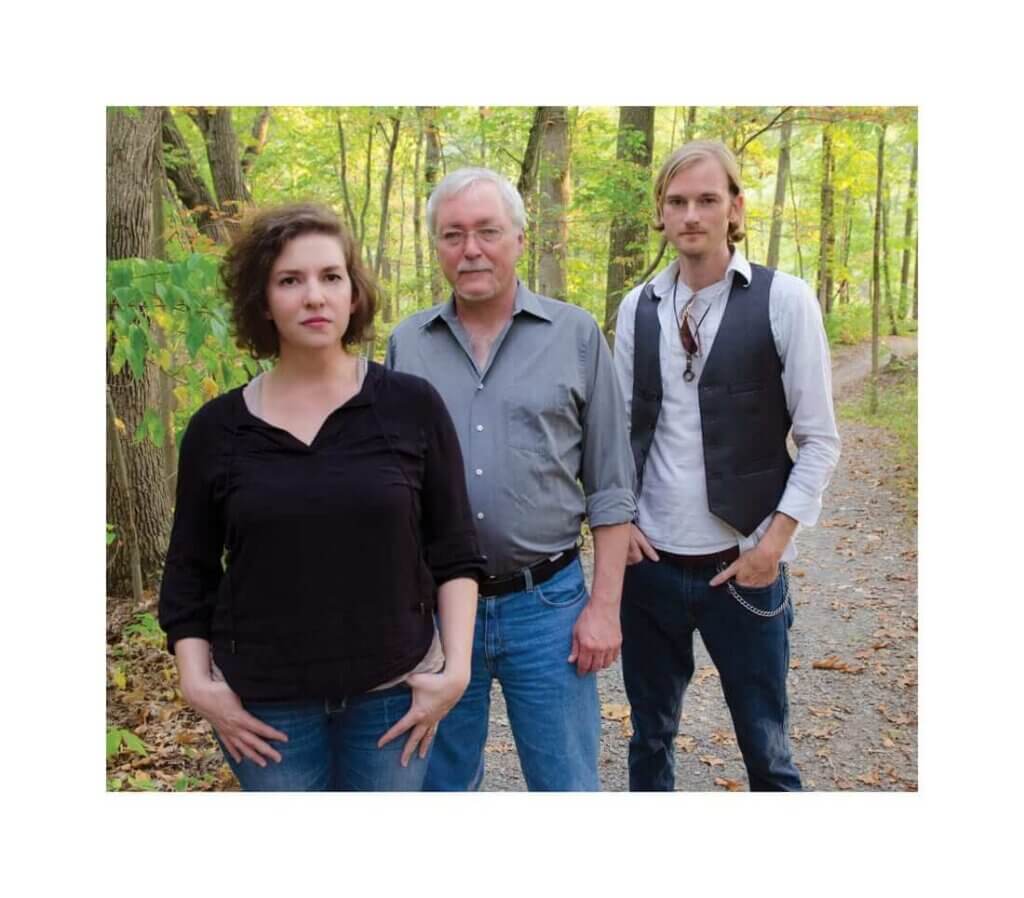A podcast revisits Morgantown’s most infamous murders—and the questions that still surround the case.
It was a shot in the dark.
Kendall Perkinson, Geoff Fuller, and Sarah Gibbons didn’t know each other that well, and none of them had made a podcast before. Yet, in September 2016, the trio set out to make a multi-part audio documentary series about a 47-year-old cold case.
“It could’ve been a disaster. And it wasn’t. At all,” Gibbons says. Mared & Karen: The WVU Coed Murders, which debuted in June 2017, is both gripping and gruesome as it unravels the story of Mared Malarik and Karen Ferrell—two young hitchhikers murdered and decapitated in 1970—with deep research and razor-sharp writing and production skills.
Fuller had been interested in the story for decades, having grown up in Morgantown at the time of the murders. He even skipped high school to attend the trial of the man who later confessed—probably falsely—to the crime. His research began in earnest years later, after he met a state trooper who’d helped investigate the case and was still haunted by it.
He and Gibbons first connected online. She was researching the coed murders, came across a decade-old post Fuller had made on an online message board, tracked him down, and started sharing notes. Gibbons met Perkinson not long after. She told him about the murders while drinking on his porch one night. Perkinson, who had volunteered at a community radio station in Richmond, Virginia, suggested they turn the whole thing into a podcast.
The relationship immediately clicked. “Both Geoff and I are obsessed with the case and Kendall’s obsessed with storytelling,” Gibbons says. They began recording in early fall 2016. Fuller and Gibbons had already amassed much of the research, but they also began interviewing people who were around at the time, to bring more voices into the story.
Perkinson, who released the project through his company Kromatic Media, scored the episodes with music from Morgantown-area bands. “They didn’t know us that well. They just thought the idea of the podcast was cool,” he says. “That really says something about Morgantown.”
The first time Fuller heard what Perkinson had created, with music and narration all woven together, he thought, “Oh this is going to be good. He’s got a good ear.”
The podcast was originally supposed to run for five episodes, but Perkinson, Fuller, and Gibbons expanded that to eight once they realized the scope of the story. As of this writing, six of the episodes have been released.
The remaining two, which should be released around the end of the year, will delve into who might have committed the crimes—since many believe the man convicted for the crimes did not actually kill the women. As a result of his own investigation, Fuller now has his own prime suspect. “But Sarah doesn’t entirely agree with that. We’ll talk about that,” he says.
Lots of people await the completion of the story. The podcast earned a devoted listenership, enjoying a five-star rating on the Apple Podcasts app at this writing, with more than 100 individual reviews. That’s all but unheard-of—even the best podcasts inevitably draw negative reviews—but Mared & Karen seems to have developed a relationship with listeners that few other projects have managed.
It all has to do with a sense of place. For older listeners, the podcast stirs up long-forgotten memories. Perkinson says many people have gotten in touch to express their own theories of the case, or just to offer their recollections of the time. “Lots of raw emotion,” he says.
Younger listeners are captivated, too. Mared & Karen provides a look at a Morgantown that doesn’t exist anymore—a smaller place with no interstates and no public transportation, where hitchhiking was commonplace and women’s dorms still had curfews. “I think people like having a history to connect to their geography,” Perkinson says. http://kromatic.media
